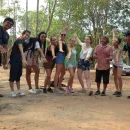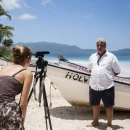Getting Scuba certified is an exciting step toward exploring the underwater world and in this guide, you will find everything you need to know about scuba certifications, their length, and what programs are offered to become a certified diver.
The process to get certified can be anywhere from 4 days to several weeks, depending on the course you choose and how quickly you progress.
Scuba diving certifications are provided by different organizations with the most recognized being PADI (Professional Association of Diving Instructors).
A PADI certification is an official recognition given to scuba divers who have completed training through the Professional Association of Diving Instructors. PADI is one of the most recognized and respected scuba diving certification organizations in the world.
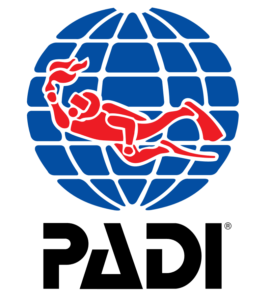
Here is a breakdown of the general time frames for different levels of certifications.
Time Required: 3 to 4 Days
After Open Water Diver certification, you can move to the advanced level, which involves a few (about 5) specialty dives.
The most popular alternatives to PADI are SSI (Scuba Schools International) and NAUI (National Association of Underwater Instructors).
Time Required: Similar to PADI - 3 to 4 Days
Time Required: 3 - 4 days
Organizations like SSI and NAUI offer similar certifications to PADI. The main difference is the teaching style, training locations, and any additional specialty courses they offer, but all adhere to similar safety standards.
Age Requirements: Minimum age is typically 10-15, depending on the certification level
Health & Fitness: You must be in good general health and complete a medical questionnaire. A doctor's approval may be required for certain medical conditions.
Basic Swimming Skills: Basic swimming ability is needed (200 meters swim, can float, and tread water)
Theory & Practical Training: Completion of theoretical study and practical training in confined and open-water
Certification Fees: Payment for the course, materials, and any additional equipment or rental costs
Parental Consent (for minors): Required for divers under 18 years old.
Local dive shops
Scuba Diving Centers / Schools
University Dive Programs
Scuba Abroad Programs
Online Training with Local Dive Shops
| Mask, Snorkel, and Fins | Scuba regulator- Primary & Secondary | Buoyancy control device (BCD) | Dive Tank | Weight System |
| Wetsuit or Drysuit | Dive depth gauge | Dive Knife/cutting tool | Dive light | Surface Marker Buoy |
Local Dive Shops: Offer a wide range of scuba equipment for purchase or rental
Online retailers: Websites like Amazon or specialized dive shops
Rental Gear: Many dive shops, resorts, or courses offer the option to rent the necessary equipment, especially for beginners.
Most new divers start by renting equipment while training and then invest in their own gear once they have more experience and are comfortable with the different equipment needed to fit their needs.
Typically, the PADI Open Water Diver course will cost between $300 to $500 USD depending on location. The price can be higher in more touristy or remote destinations, such as tropical dive resorts, or abroad learning.
Confined water refers to a controlled, restricted environment where new divers learn and practice essential skills in a safe and controlled manner. Typically, confined water refers to a pool or another calm, shallow body of water.
Purpose: Skill Development is where divers first get accustomed to the basic skills needed for scuba diving. It allows divers to practice skills without the stress of deep water, currents, or wildlife. It provides shallow, calm conditions for a more controlled learning environment with immediate assistance if needed.
First learn how to:
Open water refers to real-world dive environments, typically oceans, lakes, or quarries, where divers will experience more natural conditions. Open water dives take place in conditions that may include deeper water, currents, wildlife, and other factors that are more representative of actual dive conditions.
Purpose: Open water dives are the final step in completing your certification. Open water dives are where students can apply their learned skills in confined water to real diving situations. This includes exploring deeper waters, managing buoyancy, and nativating natural conditions.
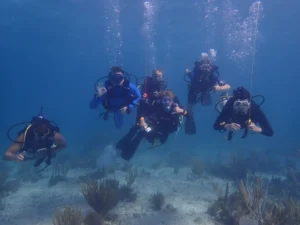
The PADI DiverMaster training program in Mexico offers an exciting opportunity for passionate divers who want to protect marine ecosystems while gaining valuable field experience. Participants will engage in hands-on conversation work, including coral reef monitoring, marine species research, and sustainability initiatives.
This course enhances diving skills, and rescue techniques, and prepares participants to supervise diving activities and assist with training. You will gain hands-on experience working alongside professional instructors, and understand underwater navigation, dive planning, and safety.
If you're looking into the dive industry, lead underwater tours, or make an impact on marine preservation efforts, this program is for you.
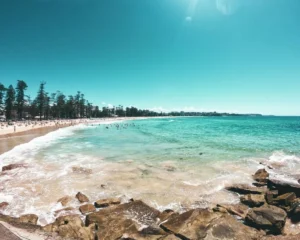
The Divemaster Training Program in Australia is an immersive experience designed for ocean enthusiasts looking to turn their passion into a career. During this program, you will gain professional diving certifications, enhance your leadership skills, and assist in marine conversation efforts while exploring Australia's underwater world. This program is perfect for those looking to get hands-on training, adventure, and career development in the diving industry.
Did you like this article ?
Share it on social media!
In this article :
Similar items
Our latest articles
